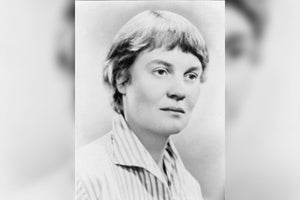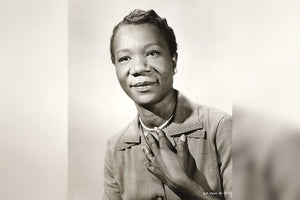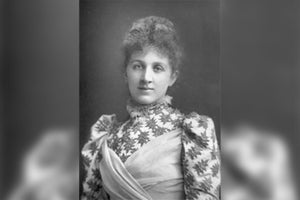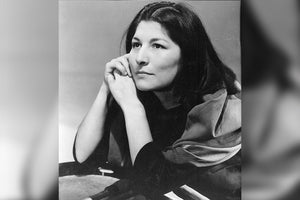Birthday – 10 May 1900
Who is Cecilia Payne?
Cecilia Helena Payne was a stellar astronomer and astrophysicist of British-American origin who forever changed the world of astrophysics in 1925 when she concluded that the stars were principally comprised of helium and hydrogen. Initially rebuffed due to contradictions it presented, succeeding studies eventually proved that she was correct.
More than this, she made a huge difference not just in Science but the world in general. She was a great source of inspiration to women in a male-dominated world.
Five Facts about Cecilia Payne
- It was Albert Einstein’s general theory of relativity that gave her complete realization that the views about the world were about to change and she was going to prove it. It was as if all the stars aligned in her world at that time.
- She was the first one ever to get a Ph.D. in Astronomy from Harvard University.
- Her doctorate thesis was only the first of many more conclusions she had in her lifetime. She was also the first woman to be granted a full-time professor post in the faculty at Harvard.
-
She was awarded the Henry Norris Russell Prize, a prestigious honor given for a lifetime of excellence in astronomical research.
-
Her thesis, Stellar Atmospheres, was deemed “the most brilliant Ph.D. thesis ever written in astronomy”.
Inspirational Quotes from Cecilia Payne
“Your reward will be the widening of the horizon as you climb. And if you achieve that reward, you will ask no other.”
“No idea should be suppressed. And it applies to ideas that look like nonsense. We must not forget that some of the best ideas seemed like nonsense at first. The truth will prevail in the end. Nonsense will fall of its own weight, by a sort of intellectual law of gravitation. If we bat it about, we shall only keep an error in the air a little longer. And a new truth will go into orbit.”
” Do not undertake a scientific career in quest of fame or money. There are easier and better ways to reach them. Undertake it only if nothing else will satisfy you; for nothing is probably what you will receive. Your reward will be the widening of the horizon as you climb. And if you achieve that reward you will ask no other.”
“There is nothing personal in the thunderclap of understanding. The lightning that releases it comes from outside oneself.”
“The reward of the young scientist is the emotional thrill of being the first person in the history of the world to see something or to understand something. Nothing can compare with that experience. The reward of the old scientist is the sense of having seen a vague sketch grow into a masterly landscape.”
Cecilia Payne Biography
Early Life
Cecilia Payne was born and raised by a widower in Wendover, England.
She was the eldest of three children who belong to an upper-class family. Their father, Edward, was a fellow of Oxford University, a musician, historian, barrister, and a judge. Cecilia developed a passion for music from her father. This was something they took pleasure in when he was alive. Sadly, their father passed away when she was four years old.
Cecilia’s mom, Emma was equally talented. She was an artist who came from an academically proficient German family. She made sure that her children were all educated and supported her family on her own when her husband passed away. Cecilia’s brother became an archeologist while her sister was an architect.
Meanwhile, Cecilia already knew that she wanted to be a scientist even at the young age of eight. It was her dream to go to the University of Cambridge to study Science. Fortunately, with the help of a scholarship, Cecilia Payne was able to set off to college at Cambridge University. She initially studied Botany but later realized that she was more fascinated with Physical Sciences.
Husband and children
Cecilia Payne met Russian-born Sergei Gaposchkin during her trip to Europe. He wanted to be an astronomer but was struggling with the Nazis at the time. She helped him secure a US visa when she came back to the United States. They wrote papers together and co-written a book called Variable Stars. They eventually got married and had children. Their family was active as church members of the Unitarian Church in Lexington.
Turning Point
Cecilia Payton initially studied Botany but later discovered that she was more passionate about Astronomy. The Arthur Eddington lecture she attended proved to be life-changing for her. This discussed Albert Einstein’s General Theory of Relativity. Payton claimed that after the said lecture, it was almost as if all the stars aligned for her.
She eventually finished her studies but was not granted a degree then, as she was a woman. Cambridge only consented degrees to women beginning 1948. Cecilia later met Harlow Shapley, the Director of Harvard College Observatory. She was the first person to get a Ph.D. in Astronomy from Radcliffe College of Harvard. This was thankfully due to Shapley’s encouragement for her to write a doctoral thesis which was later known as Stellar Atmospheres which jumpstarted her stellar career and the rest they said was history.
Mission and Work
Cecilia Payne’s dissertation talked about the composition of the stars. It particularly ascertained that helium and hydrogen were its main components. Though her theory was initiated rebuffed but was eventually proven and paved the path for more studies to be conducted in the said field. She was criticized at first by renowned astronomers Henry Norris Russell and Otto Struve who later recognized her effort.
Legacy
Cecilia Payne was one of the few who changed the way the world looked at women. Particularly at a time when a woman’s success is considered taboo, she made history by earning recognition for her exemplary work. She was the youngest scientist to be listed in American Men of Science at the young age of 26.
She also earned a Professor position at Harvard and eventually was appointed a Chairman in the Department of Astronomy. This was considered an enormous accomplishment as this status was not officially delegated for a woman. She was also the first woman to be awarded by the American Astronomical Society with the Henry Russell Prize.
Cecilia Payne changed the norm and empowered the women in society thru her stellar contributions to the world of Sciences. She went on to received countless awards year after year even long after she has passed. Her life’s journey and achievements had served as an immense inspiration to many. Due to this, her shining beacon has proven to be nothing less than stellar in years to come.
![]() Fast Shipping
Fast Shipping![]() Subscribe to our Newsletter
Subscribe to our Newsletter![]() 🌟 New Global Competition 🌟
🌟 New Global Competition 🌟















